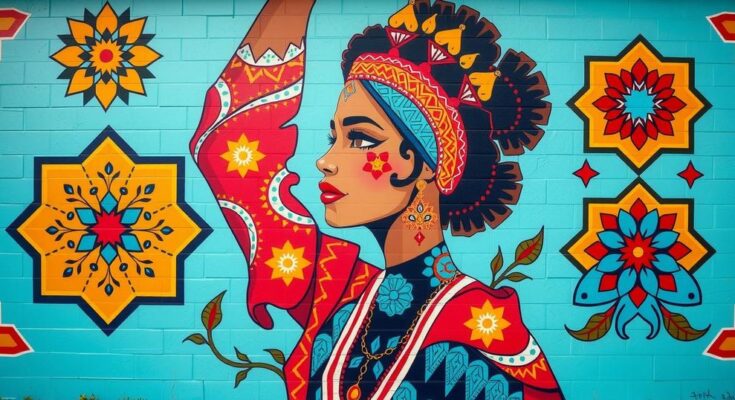King Mohammed VI’s 1999 speech highlighted the necessity of addressing women’s rights for societal progress. Despite Morocco’s efforts towards gender equality, barriers such as low political representation, economic disparities, and cultural attitudes persist. Women’s participation in politics and the economy is vital for the country’s development and ethical governance.
In a pivotal speech on August 20, 1999, King Mohammed VI posed a critical question regarding societal progress: “How can we imagine the progress and prosperity of society if the interests of women, who make up almost half of that society, are not taken into account?” This assertion emphasizes the dual realities of a committed effort to enhance women’s status alongside the continued injustices they face, especially in light of their capabilities in education and the workforce.
Today, Morocco continues to grapple with gender disparity, as evidenced by its Global Gender Gap Ranking, where it placed 136th out of 146 countries in 2022. This ranking highlights various factors, including political negligence towards women’s issues, inequalities in poverty and employment, inadequate economic empowerment, and the persistent violence against women.
Political engagement remains markedly low. A 2023 study by the Moroccan Organization for Family Justice discovered that 86.32% of women have never pursued candidacy for public office, with only 8.49% of women affiliated with political parties. Despite women comprised 54% of the vote in the 2021 elections, they held only 24% of parliamentary seats, indicating a disconnect between voting behaviors and female representation.
Significant strides have been made, including constitutional guarantees of equality and ratification of gender equality conventions like CEDAW. However, political representation remains below global standards, showing a gap between policy formulations and actual implementation of women’s rights.
Several barriers hinder women’s political participation, such as the perception of politics as intimidating, lack of confidence in public affairs, and exclusion from electoral lists. Societal attitudes, including the reinforcement of traditional gender roles, media stereotypes, and lack of familial support, further complicate women’s political engagement.
Moreover, the recent elections in the House of Counsellors demonstrated a complete absence of women in leadership roles, contradicting constitutional mandates for equality. This situation underscores the need for collective societal efforts to foster a culture of democracy and promote women’s rights.
In the economic domain, women have seen incremental progress since the first female ministers were appointed in 1997. Currently, there are seven female ministers, though they represent only 19.86% in the political sector and face significant wage disparities compared to men. The overall employment rate for women is just 19.5%, with many citing domestic responsibilities as barriers to their workforce participation.
In conclusion, while Morocco has observed advancements in women’s rights, propelled by women’s movements and supportive forces, substantial challenges persist. Addressing these challenges requires a comprehensive approach, ensuring women’s representation in political and economic spheres, which is critical for national development and ethical governance.
In summary, Morocco has witnessed some progress in women’s empowerment fueled by advocacy by women’s movements and constitutional commitments. Nonetheless, significant challenges remain, primarily in political representation and socioeconomic equality. It is crucial to tackle these obstacles to truly fulfill women’s roles in governance and society, which not only supports their rights but also enhances overall national progress and ethical governance.
Original Source: www.moroccoworldnews.com




